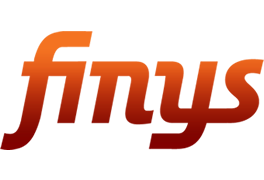The Philosophy of Leadership
By Robert Randolph
I’m the Project Lead for the Wayne Insurance Group Team and have been with Finys since 2012. Before that, I spent several years on the migration team, learning the ins and outs of the industry.
My career path before Finys was sparse, to say the least. I worked at a computer repair company owned by someone I knew. I told him why I wanted to go to school and where. He not only supported my decision but also allowed me to leave the job, attend school for several years, and return to the same position afterward. When I came back, he actively encouraged me to seek new opportunities. He even let me use company time for interviews as long as it wasn’t malicious. Leaving that job was incredibly difficult, but it taught me an invaluable lesson: always give your all. If I don’t give my all, I’m not just shortchanging myself—I’m shortchanging my company and our customers.
From the moment I walked into Finys, I knew this company was different. I felt at home right away. When I started, we were just 24 people, which meant I had the chance to talk with Kurt [Diederich, president and CEO] daily. I’d leave work in awe that the company owner walked the floor, checked in on us, and genuinely cared about how projects were going. Even though we’ve grown considerably since then, Finys has maintained that personal touch. I could walk into his office right now if I wanted to just check-in.
At Finys, everyone is encouraged to be a leader, regardless of their title. In some companies, a manager is simply someone who delegates work. At Finys, leaders lead by example. Our leaders take responsibility, go above and beyond, and work alongside their teams to get the job done. A true leader doesn’t just assign tasks—they step up, take charge, and ensure things get done. And if something goes wrong, a leader doesn’t just find someone to fix it; they understand how to fix it themselves.
Leaders don’t need to have all the answers. In fact, the best leaders often feel unprepared for the job. That’s what makes them great—they recognize that others bring valuable skills to the table. For example, someone who reports to me isn’t a Project Lead yet, but he will be one someday. If something goes sideways, he steps in first before it even reaches me. If he can’t fix it, I teach him how. And if I don’t know how, I make sure I know who does. Leaders need to be comfortable with being uncomfortable.
You can’t become a great leader without an example—either by following a good one or learning from a bad one and choosing to lead differently. At Finys, we have a great example in our CEO, Kurt. In other companies, many new employees—fresh out of college—think they already know everything. They won’t try different approaches. Instead, they’ll say, “Oh, yeah, I know how that’s done. Just do it this way.” They don’t challenge the developer or take the time to teach meaningfully. A true leader walks you through the process, ensures full understanding, and then lets you take the reins. In my mind, open-mindedness and ambition are one and the same.
Opportunities at Finys aren’t dictated by seniority; they’re based on the effort you put in. In many other companies, progression is slow because of rigid hierarchies. But here, the person I’m working with right now has only been with the company for a short time, yet he’s already on track to be able to do the same job as me, and I’ve been here 13 years. But at Finys, it’s not about tenure—it’s about drive, resilience, and how you overcome failures.
Don’t be afraid to fail. Failure isn’t the end—it’s part of the learning process. If you fail, so what? What matters is that you fix it. If a person fails, learns, and corrects their mistake, that’s invaluable. They’ve gained knowledge, grown from the experience, and prevented a bigger problem down the road. That’s real education. I made a mistake. I corrected it, learned from it, and won’t make it again. More importantly, I’ll pass that knowledge on to others.
Perhaps the greatest testament to Finys is this: we’ve had employees leave and then come back—because they realized what a truly special place this is. I guess it’s like the song says: You don’t know what you’ve got till it’s gone.


